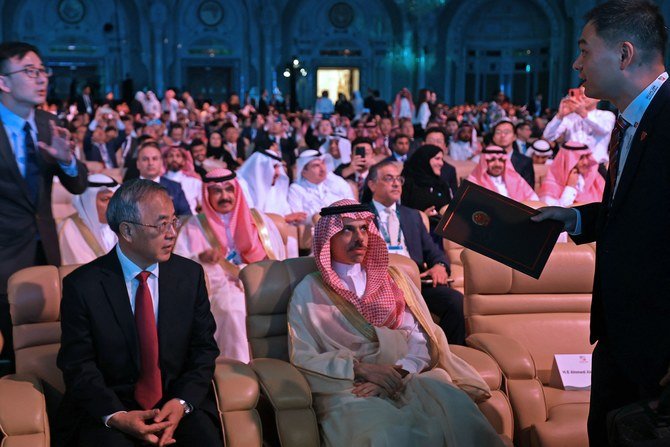Dr. Al Jasser highlighted how the IsDB Group has supported agricultural development in its 57 member countries during his intervention.

The 10th Arab-China Business Conference was held on Sunday in Riyadh, the capital of Saudi Arabia, under the auspices of His Royal Highness Prince Mohammed bin Salman bin Abdulaziz Al Saud, the Crown Prince and Prime Minister of the Kingdom of Saudi Arabia.
The Arab China Business Conference, with the theme “Collaborating for Prosperity,” aimed to support and promote economic, trade, and investment cooperation to find win-win solutions for China and the Arab world.
The theme highlighted the historical ties between China and Arab countries as well as the enormous growth potential in industries like manufacturing, finance, agriculture and food security, strategic minerals and mining, digital and e-commerce, petrochemicals, renewable energy, healthcare, tourism and entertainment, transportation and logistics, artificial intelligence, and robotics.
30 $10 billion investment agreements were signed at the 10th Arab-China Business Conference in a variety of industries, including technology, renewable energy, agriculture, real estate, minerals, supply chains, tourism, and healthcare. Saudi Arabia signed agreements with Chinese companies for rail waggon production, tourism development, and automotive research. Deals between businesses were also made during the occasion, which got underway on Sunday in Riyadh.
Prince Abdulaziz bin Salman, the Saudi Arabian energy minister, announced plans for increased Saudi-Chinese investment with a focus on cooperation rather than competition.
- The kingdom inked deals worth $266 million for tourism and app development with Android developer Hibobi Technology Ltd. in Hong Kong, as well as a $5.6 billion deal for automotive research, development, manufacturing, and sales with Chinese company Human Horizons.
- A $250 million agreement signed to produce rail waggons and wheels in the Kingdom between Chinese state-owned and publicly traded rolling stock manufacturer CRRC and Saudi railway company SABATCO.
- A $150 million agreement signed to manufacture caustic soda, chlorine and its derivatives, chlorinated paraffin, calcium chloride, poly vinyl chloride, and related conversion products in the Kingdom between the Investment Ministry, the Ministry of Industry and Mineral Resources, and Chinese industrial manufacturer Sunda.
The Kingdom is making steady progress towards its Vision 2030 plan, while China is advancing its Belt and Road Initiative, according to Prince Abdulaziz, who claimed that there are synergies between the two nations.
The General Secretariat of the Arab League, the Chinese Council for the Promotion of International Trade, and the Union of Arab Chambers have joined forces with the Saudi Arabian investment and foreign ministries to organize the two-day event.
Saudi Foreign Minister Prince Faisal bin Farhan inaugurated a conference on behalf of Crown Prince Mohammed bin Salman, highlighting efforts to enhance the Arab-China partnership in all sectors.
The conference aimed to achieve mutual compatibility, exchange experiences, and launch new opportunities for growth and investment. The event attracted over 3,500 business leaders, innovators, and policymakers from 26 countries, focusing on environmental, social, governance, and supply chain resilience.
Saudi Arabia has revived the Silk Route to boost trade ties with China. Investment Minister Khalid Al-Falih believes the Kingdom can serve as China’s gateway to the Arab world, contributing 25% of the $432 billion trade between China and Arab countries in 2022.
The revival of the Silk Route aligns with Saudi Arabia’s vision to diversify its economy and use modern technology to enhance youth skills.
Trade between Saudi Arabia and China reached $106 billion in 2022, a 30% increase from 2021. The program will conclude with a keynote from Dilma Rousseff, former president of Brazil and current president of the New Development Bank, which mobilizes resources for infrastructure and sustainable development projects in emerging markets and developing economies.